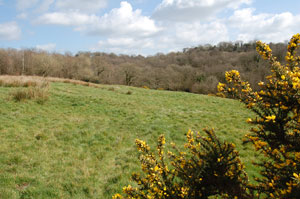In January 2008, the Mastic Asphalt Council (MAC) made history as the first industry in the world to achieve Carbon Zero status. Since then it has offset a staggering 6,648 tonnes of carbon dioxide – underlining mastic asphalt’s status as a green waterproofing material.
Working closely with co2balance – a leading carbon management company – MAC first reduced its carbon emissions to a bare minimum. Any remaining carbon was offset through carefully chosen projects that have acted to reduce worldwide carbon still further.
Through co2balance, these emissions have been offset by investing funds in energy efficient projects that absorb or prevent the exact tonnage of their carbon footprint. In addition, they have also benefited local communities by creating jobs and improving quality of life. Three key projects are now well under way in the UK and Africa.
Somercombe Wood
Contributions by MAC have seen 1,217 trees planted in Devon’s Black Down Hills, situated in an Area of Outstanding Natural Beauty (AONB).
By naturally absorbing CO2 as they grow, they will prevent it from contributing to climate change. The trees planted include a mix of broadleaf native trees such as English Oak, Ash, Silver Birch and Alder.
At 35 acres, Somercombe Wood is owned by co2balance, guaranteeing the future of the trees. This means that their carbon reducing benefits will continue for decades to come.
Once completed and mature, the plantation will be opened to the local community and owned by a charitable trust. It will also link two larger areas of woodland to create a single forest in excess of 200 acres – connecting up valuable habitat to create safe corridors for wildlife.
African energy efficient stoves
Working with co2balance, MAC has also helped build 146 energy efficient stoves in the Msambweni region of Kenya, with each promising to save over 15 tonnes of CO2 in its lifetime.
It is a project currently in the process of being internationally recognised as a Gold Standard Project – a benchmark set out by the World Wildlife Fund and endorsed by over 49 non-governmental organisations worldwide.
Typically, cooking in Africa is done with open fires, which are highly inefficient, fuel intensive and, therefore, produce large amounts of carbon emissions. By replacing them with stoves that are 70% more energy efficient, considerably less wood is needed for cooking.
In addition to the environmental benefits, the project is making a valuable social and economic contribution to the local community. The reduced need for firewood and the burning of rubbish means local deforestation is prevented. This means many trees are saved, which themselves absorb CO2 as they grow. As the stoves are built within the villages, they also create local employment.
Each stove provided by MAC is tagged by GPS, providing reference points to track their usage throughout their lifetime. The project is completely owned by co2balance, and managed through its Nairobi office.
African energy saving light bulbs
Over 6,570 energy saving light bulbs, which use a mere 20% of the energy of a normal incandescent bulb, have also been provided to schools and local community groups in Kenya.
For every two bulbs provided, it takes just four years to save one tonne of CO2.
Usually way beyond the budget of the average Kenyan, the new bulbs mean lower energy bills and a far greater life cycle. This means huge financial savings to families and schools, while eliminating the cost and waste associated with frequent replacements.
These three projects have helped to ensure that mastic asphalt – one of the world’s oldest waterproofing materials – reinforces its green credentials.
Used to waterproof the majority of the nation‘s most prestigious buildings and commercial developments, mastic asphalt has long been one of the most cost-effective waterproofing membranes of its kind. Once laid, mastic asphalt promises to last the design life of the roof, far outperforming any other membrane on life cycle costs.
With its immense durability and outstanding green credentials, mastic asphalt is the natural choice for architects and key specifiers searching for the ultimate waterproofing membrane for green roofs.
Green roof systems increase the life expectancy of waterproofing membranes and require little long-term maintenance. They enhance the environment, control storm water run-off and reduce noise and heat transmission by upgrading the acoustic and thermal performance of a roof. When combined with mastic asphalt, they represent the ultimate in eco-friendly roofing.
Its longevity means mastic asphalt promises outstanding waterproofing protection for several decades. Plus green roofing systems provide excellent natural protection to the waterproofing membrane – shielding it from everyday wear and tear. It’s little surprise then to see the membrane has remained in the same condition as the day it was laid.
When it does eventually reach the end of its serviceable life, mastic asphalt can either be recycled or broken down or used in mastic asphalt roof screeds etc. This means the environment, as well as the building, will continue to be protected for future generations.
No wonder then that architects continue the specify mastic asphalt – a traditional waterproofing material more relevant than ever to the needs of a modern construction industry coping with climate change.

